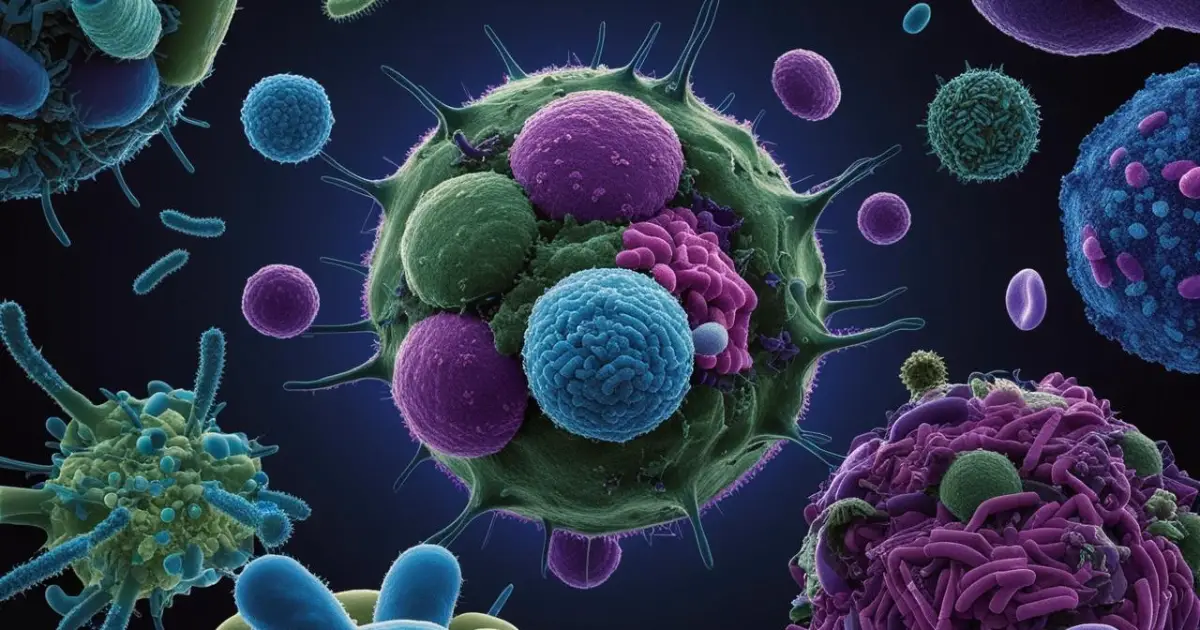November 14th, 2024
Staff Writer for Wake Up World
The Role of Gut Microbiota in Stress Regulation
New research published in Cell Metabolism sheds light on the critical role of gut microbes in managing stress responses throughout the day. This study by University College Cork and APC Microbiome Ireland shows that our gut microbiota not only helps digest food and regulate metabolism but also plays a crucial role in how our bodies respond to stress, linked to the body’s circadian rhythms.
How Gut Microbes Regulate Daily Stress Cycles
Our bodies rely on circadian rhythms—internal clocks coordinating essential processes like sleep, digestion, and hormone production. This new study reveals that gut microbes play a vital role in modulating these rhythms, directly influencing how our bodies respond to stress. Disruptions in microbiota levels can destabilize the hypothalamic-pituitary-adrenal (HPA) axis, the brain’s central stress-response system, leading to imbalanced stress hormone cycles and increased sensitivity to stress.
As lead researcher Professor John Cryan explains, “Our research has uncovered a significant link between the gut microbiota and the brain’s stress response, showing that the gut microbiome not only impacts digestion and metabolism but also regulates stress through a precise circadian rhythm.”
Microbial Influence on Hormones and Brain Function
One of the study’s key discoveries involved a specific strain of bacteria, Lactobacillus reuteri, which emerged as an essential regulator of the stress hormone glucocorticoid. By controlling the secretion of these hormones in sync with the day-night cycle, L. reuteri influences our ability to manage stress in a balanced way. Researchers found that altering the gut microbiota could disrupt these hormone patterns, underscoring the importance of maintaining a balanced gut for optimal mental health.
Dr. Gabriel Tofani, the study’s first author, explained, “Our findings underscore the importance of not only the gut microbiota composition but also how gut microbes change across the day. By showing that gut bacteria influence how the body handles stress throughout the day, we’re helping to understand the mechanisms through which the microbiota shapes our responses to the environment.”
Implications for Mental Health and Potential Therapies
Stress and mental health disorders like anxiety and depression often go hand-in-hand with disrupted circadian rhythms and irregular sleep patterns. This research suggests that maintaining a healthy microbiome may help people manage stress better and potentially reduce the risk of mental health issues. With these findings, scientists see the possibility of developing microbial-based therapies that support mental well-being by targeting specific gut bacteria that regulate stress responsiveness.
Professor Paul Ross, Director of APC Microbiome Ireland, emphasized the study’s significance: “This study is a significant leap forward in our understanding of how the microbiome shapes our mental health. The potential to improve mental health through microbiome-based interventions is very real, and this study takes us one step closer to that goal.”
Why Modern Lifestyles Disrupt the Microbiome
Today’s fast-paced lifestyle often disrupts natural circadian rhythms, primarily due to stress, poor diet, irregular sleep, and lack of physical activity. These factors weaken the gut microbiome, reducing its ability to regulate stress effectively. As our lives become more digitally connected yet physically isolated, stress-related disorders are on the rise, often stemming from a combination of circadian and microbial imbalances.
The study’s insights into the gut-brain connection highlight the importance of nurturing gut health as part of overall well-being. For those navigating the challenges of modern life, understanding how to support a balanced microbiome can be a powerful tool in managing stress.
Practical Tips for Supporting Gut Health and Reducing Stress
Implementing simple, microbiome-friendly habits can strengthen the gut’s ability to manage stress, supporting physical and mental health. Here are some practical tips for keeping your microbiome healthy:
-
Eat a Diverse Diet Rich in Fiber and Fermented Foods
Fiber feeds beneficial bacteria in the gut, while fermented foods like yogurt, kimchi, and sauerkraut provide live bacteria that contribute to a healthy gut microbiome. -
Stick to a Consistent Sleep Schedule
Since gut microbes influence the body’s circadian rhythms, maintaining a regular sleep pattern helps synchronize the microbiome with the body’s natural cycles, reducing stress susceptibility. -
Exercise Regularly
Physical activity promotes healthy gut microbiota and helps manage stress. Aim for 30 minutes of moderate exercise most days of the week. -
Limit Antibiotic Use
Antibiotics disrupt the gut’s balance by killing beneficial bacteria, so use them only when necessary. Consult a healthcare provider before taking antibiotics and consider using probiotics afterward to restore gut health. -
Reduce Processed Foods and Sugar
Diets high in processed foods and sugar can harm beneficial gut bacteria, making the body more prone to stress-related issues. Prioritize whole foods for a healthier microbiome. -
Consider Probiotics
Certain probiotic supplements may support gut health and stress management. Speak with a healthcare professional to find beneficial strains for stress regulation.
Conclusion: A Balanced Gut for a Balanced Mind
This research marks a new chapter in understanding how closely linked our gut health and stress responses are, opening doors to future therapies that may reshape mental health care. As we learn more about the gut-brain connection, it becomes clear that caring for our gut isn’t just about digestion—it’s also crucial for emotional well-being. By integrating small, manageable habits supporting gut health, anyone can improve their stress resilience and mental clarity.
It turns out that our bodies hold many answers within the microscopic world of the gut. By nurturing this internal ecosystem, we may find a path toward not only a healthier gut but also a more balanced and resilient mind.
Journal Reference:
- Gut microbiota regulates stress responsivity via the circadian system. Cell Metabolism, 2024; DOI: 10.1016/j.cmet.2024.10.003
About the Author
Lily Anderson is an enthusiastic writer and curious investigator of the latest scientific developments. Driven by a strong desire to learn, she has a knack for simplifying complex concepts into engaging stories, making science accessible and interesting to a broad audience. Lily’s work is important for connecting specialists with the general public, sparking wonder, and fostering meaningful conversations about new scientific discoveries.
What if your life’s challenges and triumphs mirrored the sacred cycles of the universe? The Four Paths of Creation Spirituality—Via Positiva, Via Negativa, Via Creativa, and Via Transformativa—offer a transformative framework for aligning with these cycles to revitalize your purpose, creativity, and well-being.
This free online event will teach you how these spiritual paths integrate with cosmic energy to inspire your inner growth and creative potential. From embracing life’s joys to navigating its uncertainties, you’ll explore how these paths can guide you toward living authentically and vibrantly.
Don’t miss this opportunity to connect with sacred energy and discover your place in the universe’s unfolding story. Sign up today to transform your life and creativity!
If you’ve found value in our articles, we invite you to support the release of our brand-new book, “Gratitude Practices for Kids: A Practical Guide for Adults to Instill a Spirit of Appreciation and Positivity in the Next Generation.“
“Gratitude Practices for Kids” brings together over 25 innovative and accessible practices designed to enhance gratitude in everyday life. This comprehensive guide is backed by 17 scientific studies, ensuring each concept is grounded in research, underscoring our commitment to nurturing growth, emotional intelligence, and positive interactions between adults and children.
We encourage you to opt for the paperback version to celebrate this new release. Dive into its fresh pages away from digital distractions, allowing you to immerse yourself in the transformative practices it offers.
Over recent years, Wake Up World has faced significant online censorship, which has impacted our financial ability to operate. Moving into book publishing represents a strategic step to secure the ongoing funds needed to continue our mission. By purchasing Gratitude for Kids, you help us keep our content free and accessible to everyone, avoiding needing a paywall. With over 8,500 articles published in the last 13 years, we remain dedicated to keeping our valuable content open to all.









